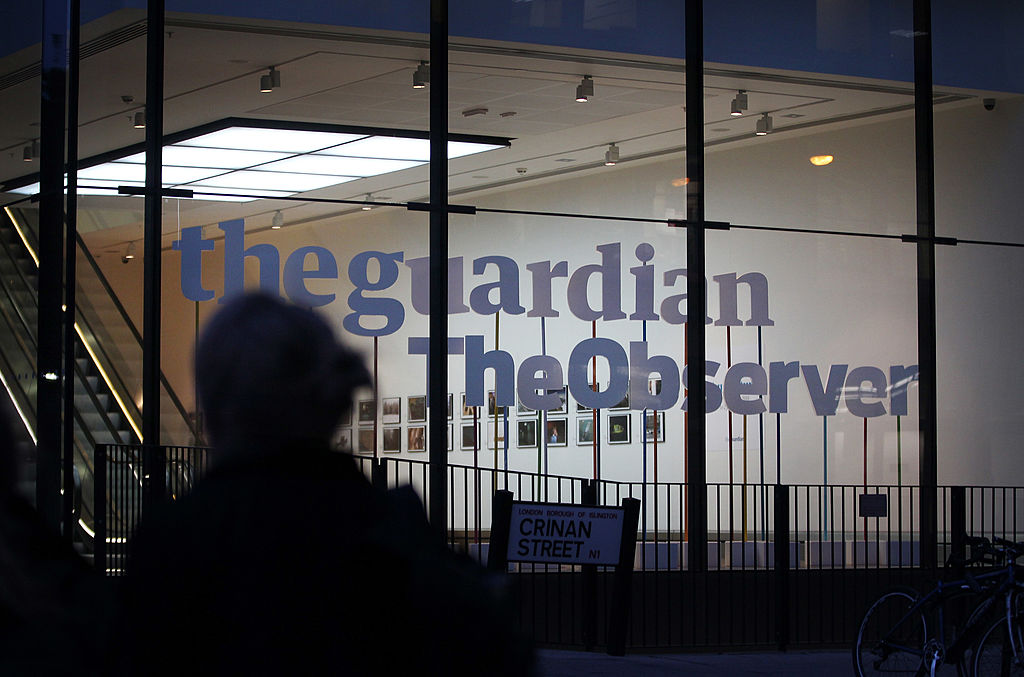In the spring of 1993, I played a small role in the purchase by The Guardian of The Observer, the world’s oldest Sunday newspaper. My colleagues at The Observer and I believed we were saving it from extinction. It turns out we were setting it up to be betrayed three decades later, along with the shredding of promises made at the time by The Guardian’s owner, the Scott Trust.
The paper was about to be sold to the then-thriving Independent and The Observer’s deadliest rival, the Independent on Sunday. We at the Obs, as we affectionately called it, knew what that meant: the merger of the two Sunday titles, and the loss of hundreds of jobs.
I contacted the Guardian editor, Peter Preston, and we fixed a meeting in a backstreet pub together with Dave Randall, The Observer’s head of news, and Richard Brooks, our media editor. The Guardian had already made a bid which was rebuffed, but Preston believed that if our approach could be presented to The Observer’s then-owner, Tiny Rowland, as evidence that the staff were desperate to preserve the Obs’s traditions and identity, things might be different.
So it proved. Following hurried secret talks, on 16 May 1993 The Guardian announced it had clinched the deal, sealing it with a promise from Hugo Young, the high-minded columnist who chaired the Scott Trust: “The Trust safeguards will be fully extended to The Observer, which will be edited independently of The Guardian and retain its separate character.”
Those safeguards had been restated only a year earlier, when the Trust said its purpose was “to secure the financial and editorial independence of The Guardian in perpetuity”. As a Guardian advertising campaign stressed just last year, the paper was not, and never would be, for sale.
In the following decades, Young and his Trust successors took a close, benign interest in their purchase. The last Observer editor, Paul Webster, who retired earlier this month, used to give them an annual, verbal report. And then, like everyone else at the paper, he was blindsided by the proposed sale of the Sunday paper to Tortoise Media, the online start-up fronted by former Times editor James Harding.
It has already been pointed out that in financial terms, this makes little sense. If the economics of a standalone Sunday paper were daunting in 1993, when the Observer was selling well over 500,000 copies a week, they are much more so now, when print sales are less than a sixth of that figure — although, at the same time, its market share has increased. Tortoise has lost some £16 million since it was founded in 2019, and it is unclear where it will get the £25 million it claims it will invest in the Obs.
Moreover, The Guardian and the Trust are sitting on a £1.3 billion cash mountain, with millions added every year from donations by readers of its website and figures such as Bill Gates. Meanwhile, The Observer has been making a profit — casting strong doubt on the claims by Guardian Editor Katharine Viner and CEO Anna Bateson that it must be sold if it is to survive. Internal projections suggest that its balance sheet may go into the red in 2026, but Webster told me that set against that £1.3 billion, the sums involved are like “loose change down the back of the sofa”.
However, it isn’t the financial argument that has caused such outrage among Obs and Guardian staff that they are about to go on strike, but the moral one. I was present in the Observer office on more than one occasion when Young addressed staff meetings, reiterating his pledge that the Trust’s commitment to the Obs was every bit as great as it was to The Guardian.
Yet when Viner and Bateson decided to jettison the paper, they told Webster just a few days before it was publicly announced. Worse, I understand that when Webster received the news, he wrote to the Trust’s current chair Ole Jacob Sunde, asking to address a meeting and explain why he thought the sale to Tortoise was such a bad idea. His request was declined.
The Trust was due to discuss the sale today, but few expect it is about to be halted. Viner, I am told, has scheduled a series of meetings with groups of her staff, in an effort to make her case and persuade them against striking.
Meanwhile, the most baffling aspect of the pending deal is its haste. Both parties are rushing to conclude it by mid-December, when under the terms set by The Guardian, Tortoise will lose its current exclusive bidder status. Additionally, I’m told there are at least two alternative consortia in the wings which may be prepared to pay much more.
Why the rush? So far, there has been no convincing explanation. “At the very least, this has to be paused, to allow more time for consideration,” says Webster. “Not least to the damage selling The Observer may do to the reputation of The Guardian.”











Join the discussion
Join like minded readers that support our journalism by becoming a paid subscriber
To join the discussion in the comments, become a paid subscriber.
Join like minded readers that support our journalism, read unlimited articles and enjoy other subscriber-only benefits.
Subscribe